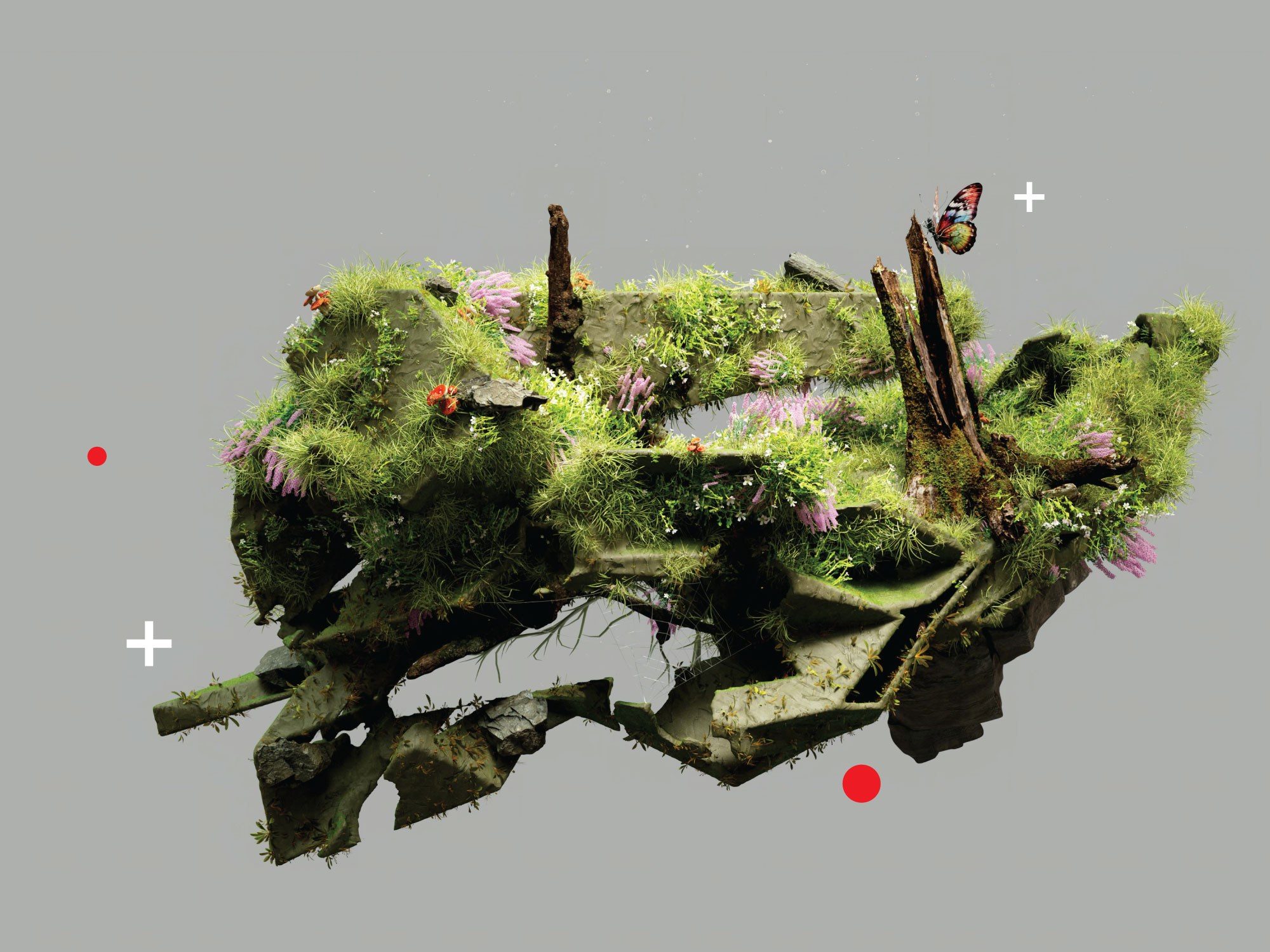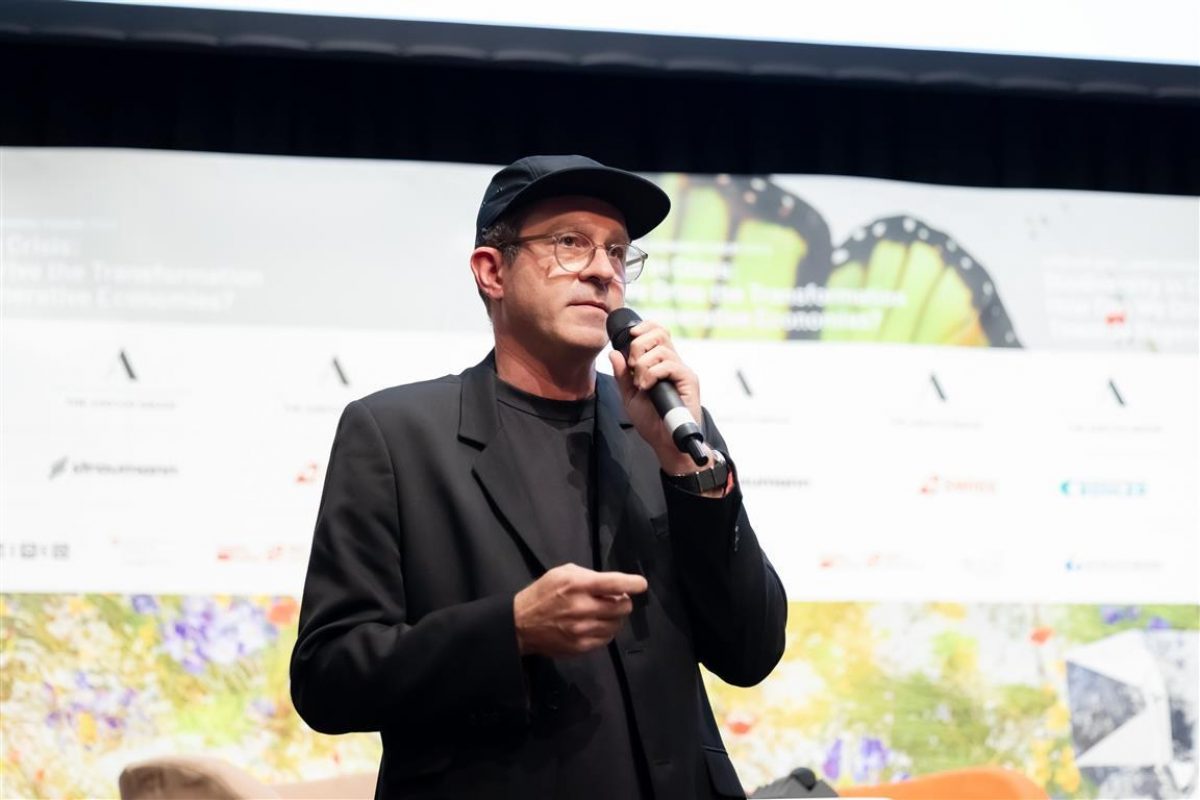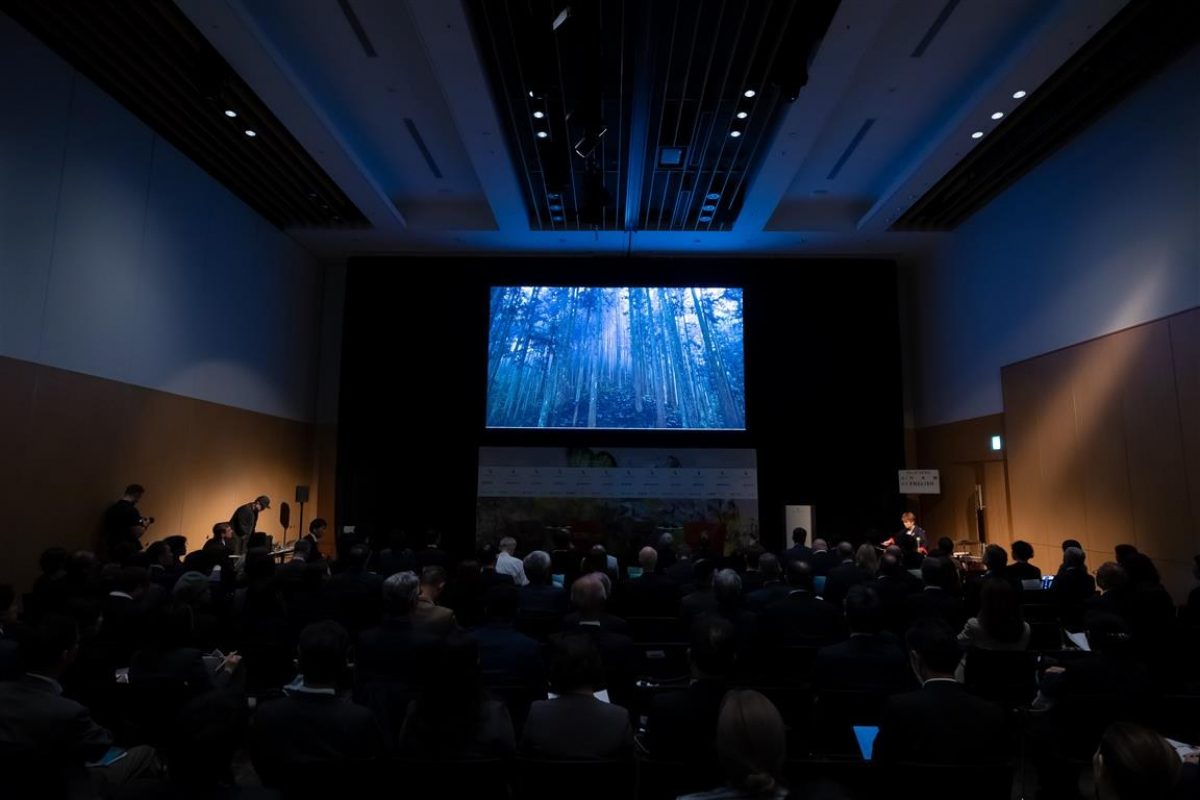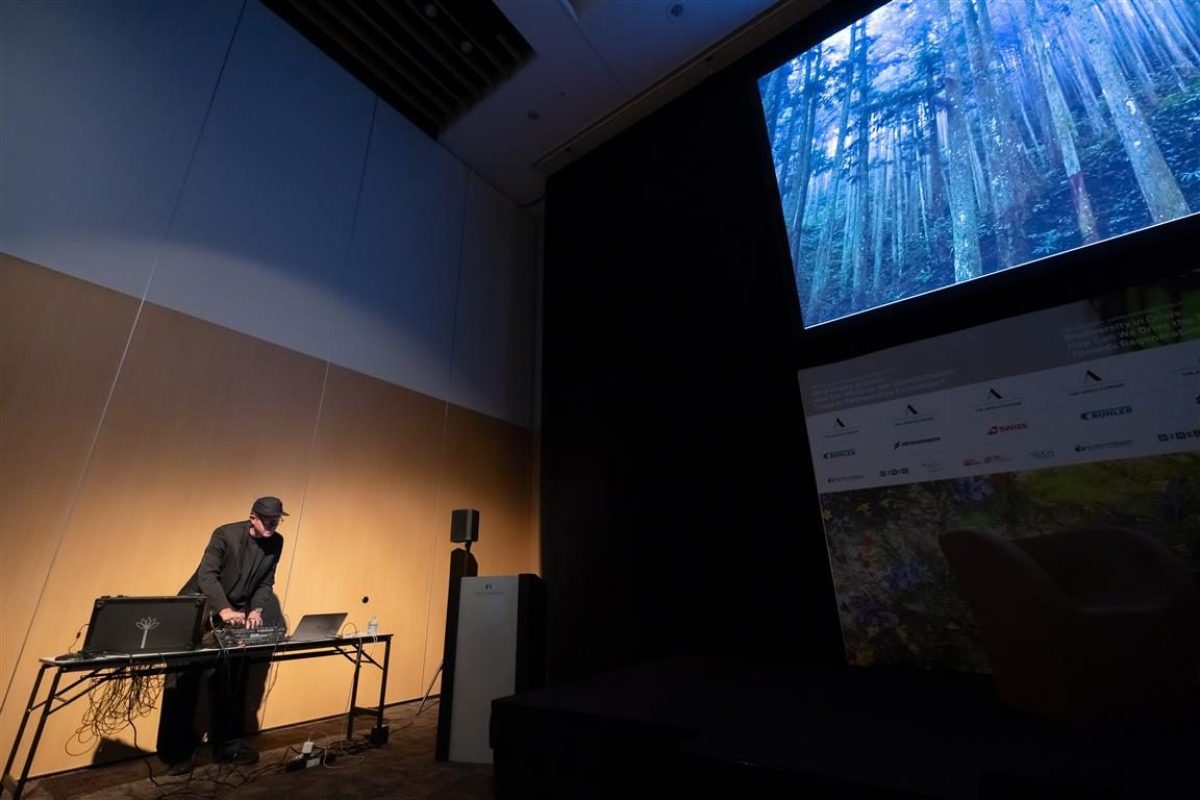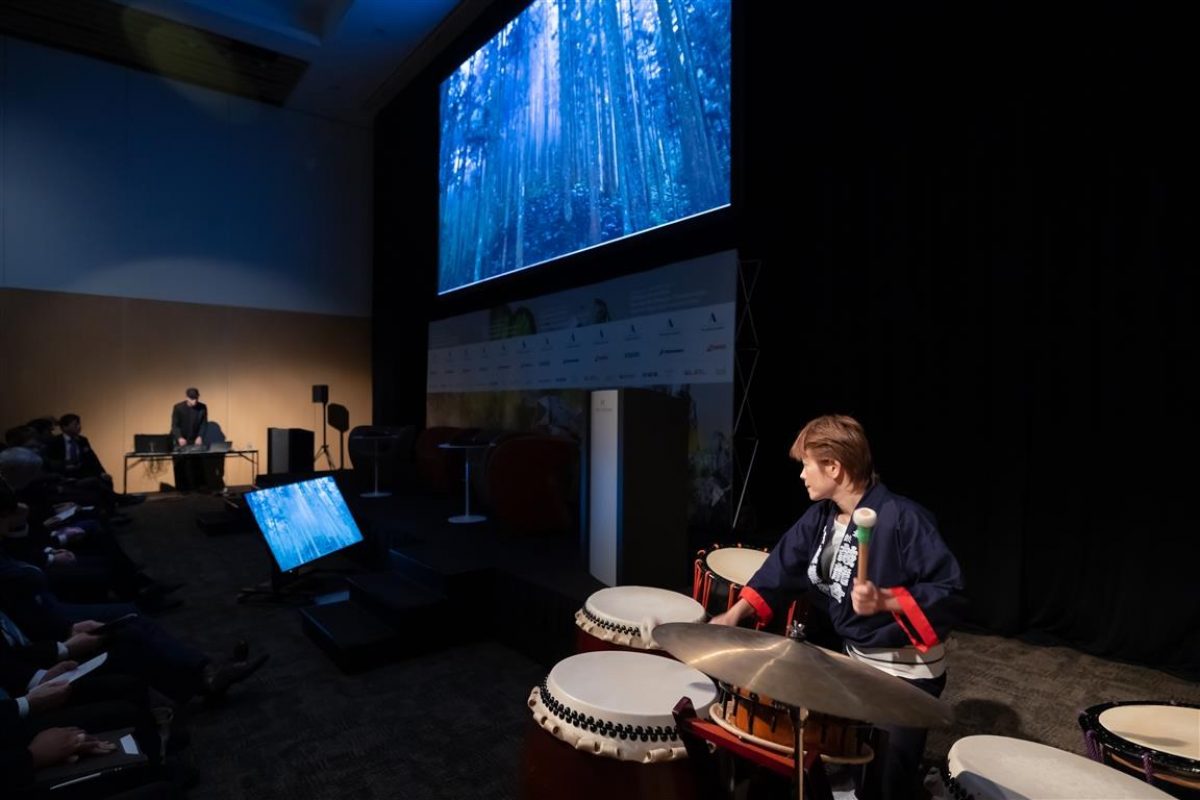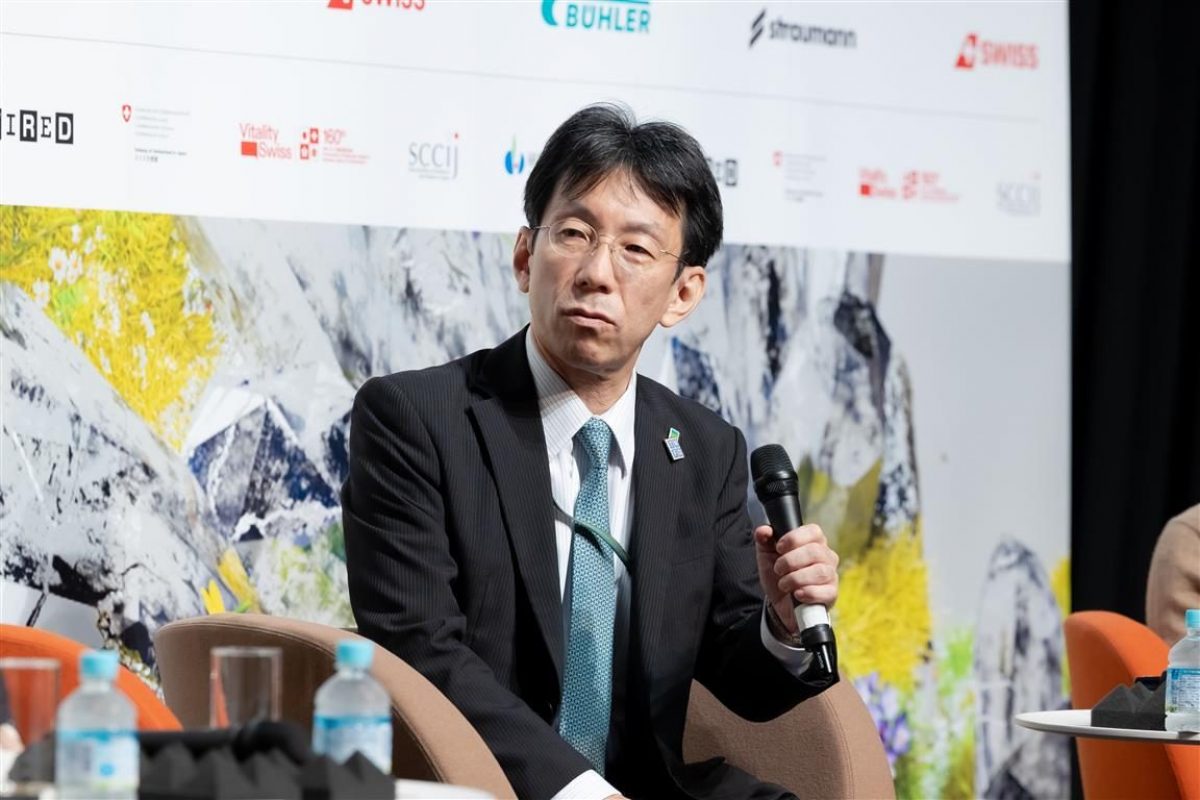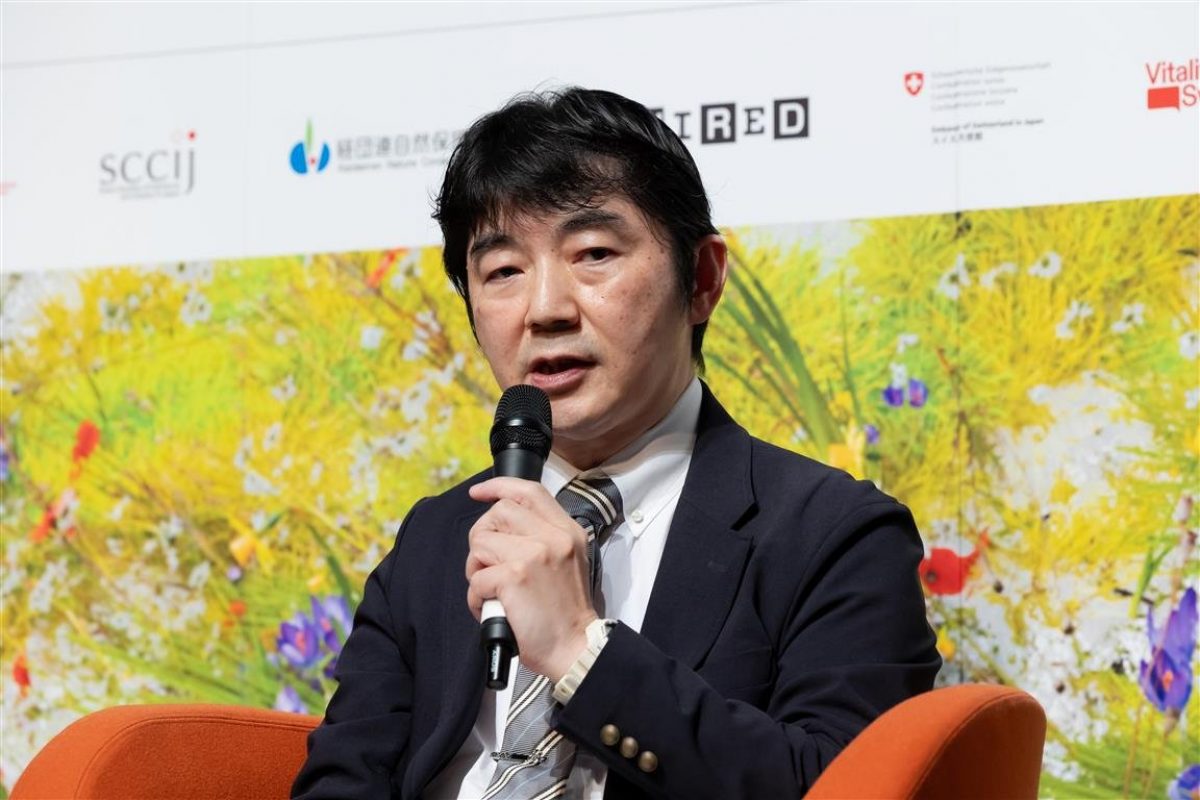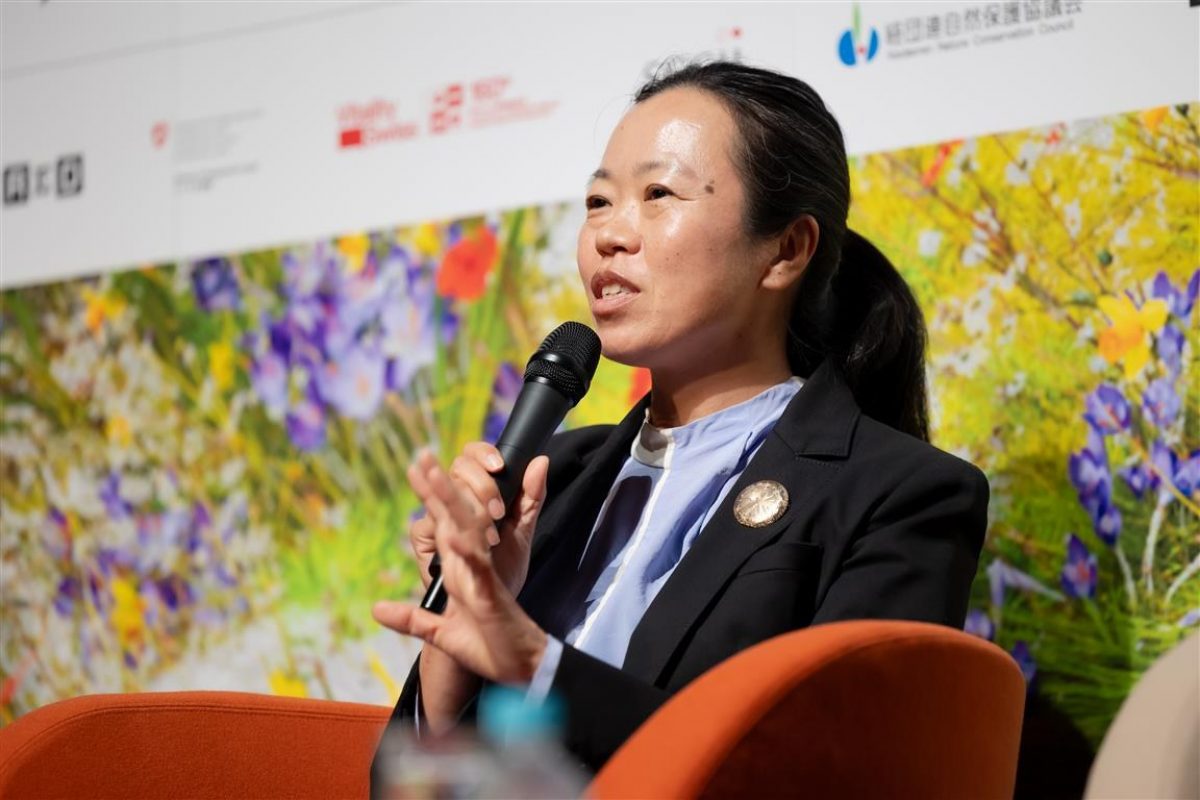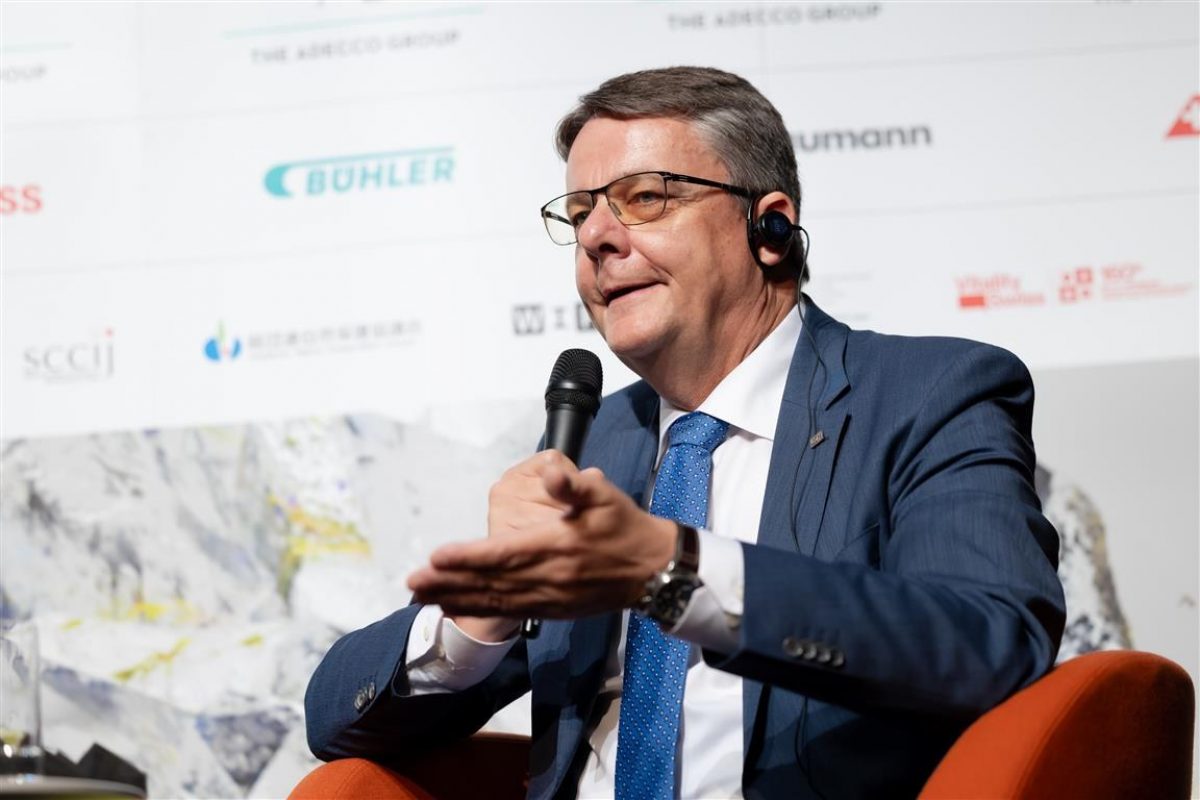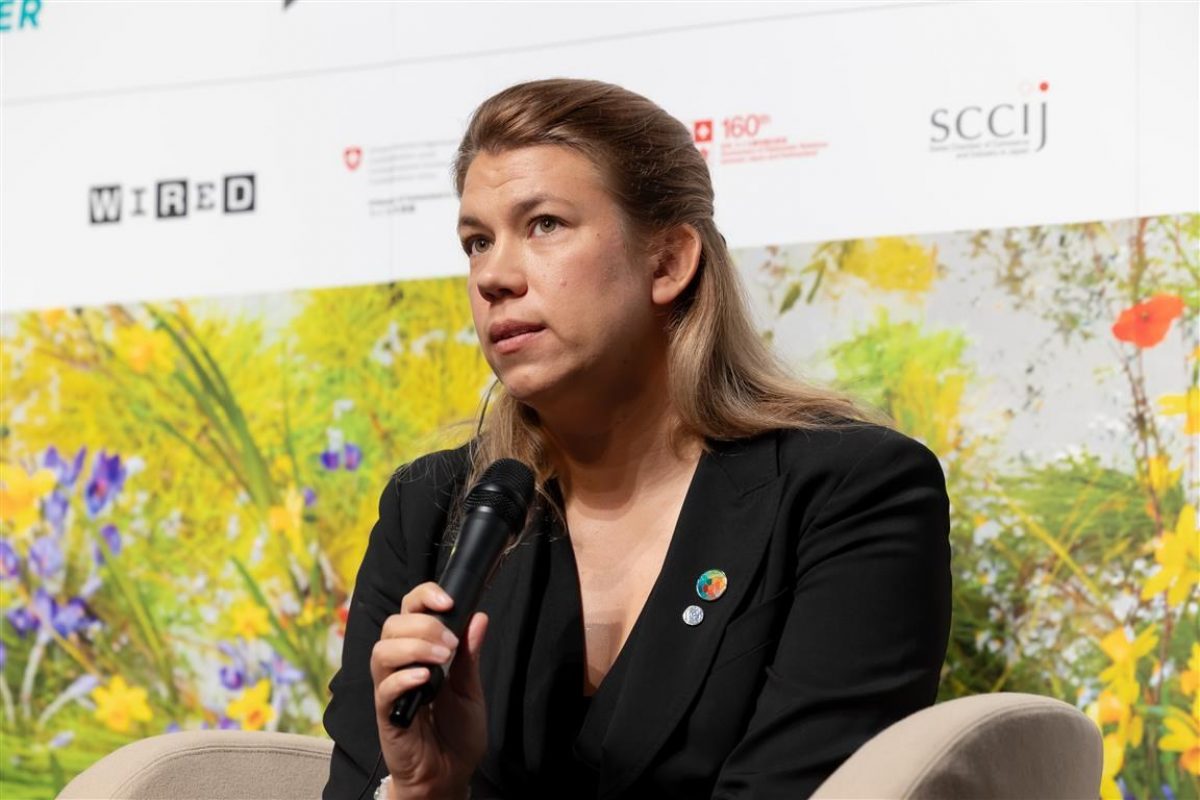Switzerland–Japan
Economic Forum 2024
Biodiversity in crisis: How can we drive the transformation towards regenerative economies?
Date: Wednesday, 9 October 2024
The time for bold action to halt and reverse biodiversity loss is now and companies are driving this critical transformation to a nature-positive economy said speakers at the Switzerland–Japan Economic Forum, which was held in Tokyo on 9 October 2024. Business leaders, researchers and representatives of international organizations and government raised awareness of the risk and economic impact of the alarming decline in biodiversity and the urgent need to regenerate nature. In front of around 160 participants at Midtown in Roppongi, entrepreneurs and innovators also demonstrated the business case for action, showcased innovative tools and provided practical insights into how industries can proactively play their part in the transition to regenerative economies - economic systems that restore and sustain ecosystems.
The event was organized by the Embassy of Switzerland in Japan and the Swiss Chamber of Commerce and Industry in Japan, with support by the Keidanren Nature Conservation Council and WIRED JAPAN. It was part of the Swiss Vitality Days, celebrating the 160th anniversary of bilateral relations between Switzerland and Japan.
Opening

The Ambassador of Switzerland to Japan, Mr. Roger DUBACH, opened the Economic Forum by referencing the fact that more than one million species face extinction. Using the example of Swiss sceneries with a mixture between wilderness and human-managed landscapes, he illustrated that both nature and human activity play essential roles, but there is a need to recalibrate and find a new, sustainable equilibrium.
Looking ahead, DUBACH announced that Switzerland also plans to showcase innovative solutions in addressing biodiversity loss at the Swiss Pavilion during the World Expo 2025 in Osaka. He concluded his speech with a call for more mindfulness in dealing with the environment.
With a mesmerizing audio-visual performance, Dr. Markus MAEDER, a Swiss artist, researcher and composer of electronic music, and Ms. Naomi KONDO, a Japanese Taiko master, took up this call. They took the audience on a journey into the forests of Nara, where MAEDER uses IoT technology and soundscapes to collect data about the health of ecosystems. It was a truly inspiring moment combining nature, tradition and modern technology.
Key Note
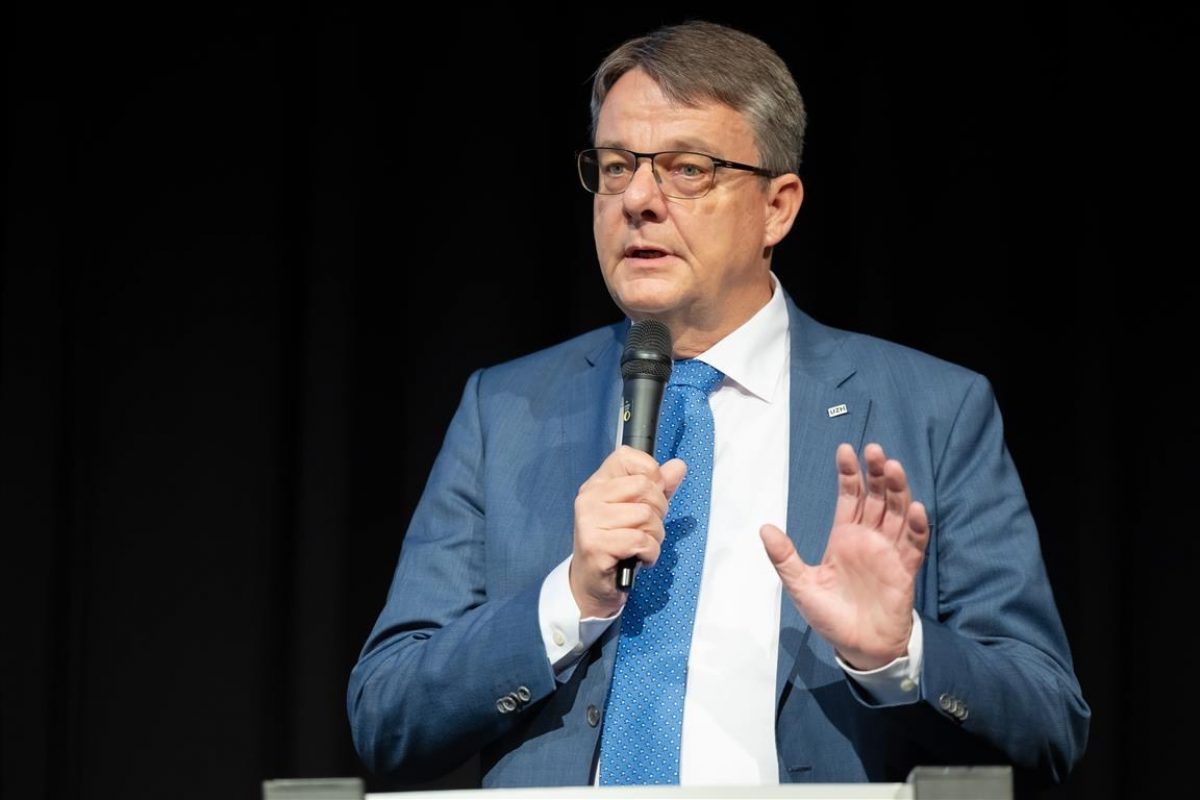
“Are humans a part of biodiversity or not? ” The answers to this thought-provoking question, asked by Prof. Dr. Michael SCHAEPMAN as part of his keynote speech, revealed a split opinion in the audience. Providing some definitions of biodiversity, the President of the University of Zurich and renowned expert in the field, emphasized that these definitions vary significantly across cultures.
Biodiversity loss is often perceived as a problem of tomorrow, he said, showing the results of the latest World Economic Forum Global Risks Report. This survey among experts identifies biodiversity loss and ecosystem collapse as one of the three most pressing issues of the decade, but not of the next two years. This is where the risk lies, because biodiversity needs to be tackled as a top priority today.
SCHAEPMAN went on to discuss various efforts that have been made so far to address the challenge of biodiversity loss. In particular, he mentioned the historic Kunming-Montreal Global Biodiversity Framework adopted by 196 States in December 2022, which sets ambitious targets to halt and reverse biodiversity loss by 2030 and also puts an emphasis on the responsibility of companies. He further referenced the important Nagoya Protocol, which regulates access to genetic resources and guarantees a fair and equitable sharing of benefits arising from their utilisation. He also mentioned several emerging initiatives, such as the Zurich Centre for Global Biodiversity, which seeks to help measure biodiversity and develop tools to prevent its loss.
Panel 1 - Biodiversity at a Crossroads: Navigating Evolving Standards, Targets and Incentives
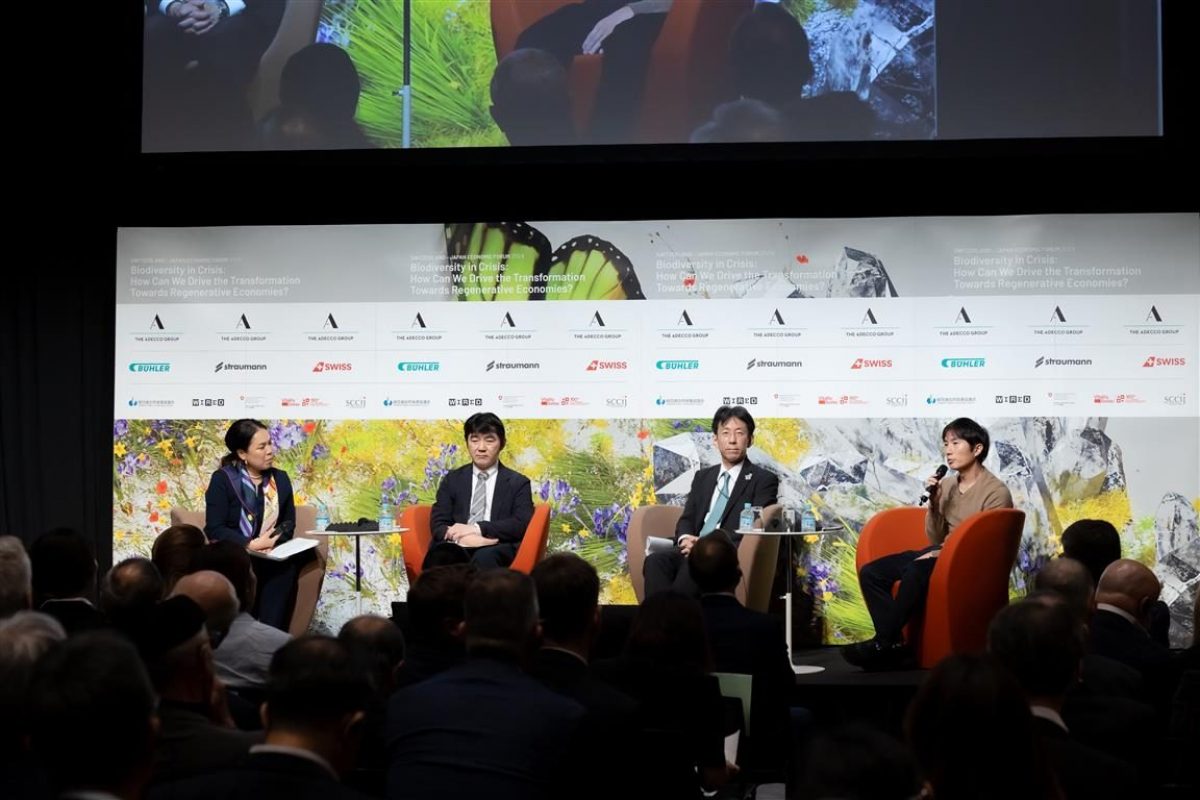
While these global efforts set the scene for biodiversity conservation, the next critical step lies in translating these frameworks into actionable strategies for businesses and financial institutions. This was further explored in a first panel, moderated by Ms. Yoko SETO from the Swiss ESG data science company RepRisk.
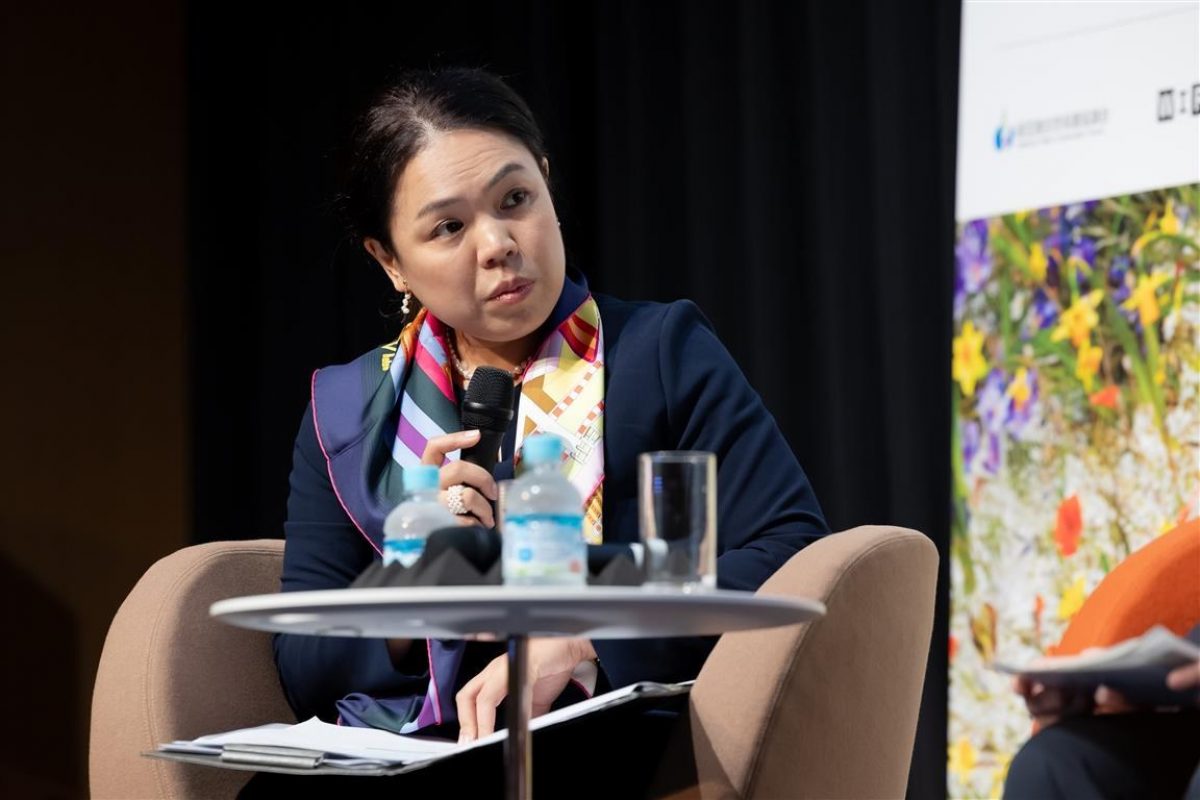
As a member of the Taskforce on Nature-related Financial Disclosures (TNFD), Mr. Hirotaka HIDESHIMA from The Norinchukin Bank explained the idea and functioning of that initiative. TNFD provides guidance for companies to accurately measure, understand and account for risks, dependencies and impacts on biodiversity. The recommendations enable businesses and finance to integrate nature into their decision-making. Ultimately, the aim is to support a shift in global financial flows away from nature-negative outcomes and towards nature-positive outcomes. Since its launch in late 2023, over 440 companies have already adopted the TNFD recommendations, more than 100 of them from Japan alone.
There is considerable momentum, but currently still too few incentives for companies to fulfil standards such as TNFD, according to Dr. Hiroshi SUETSUGU, the CEO of sustainacraft, Inc. This Japanese startup is part of the "Tools Catalogue" curated by TNFD to support companies in their work of implementing the recommendations. The catalogue also includes ENCORE, funded by Switzerland, or services by other startups, such as RepRisk.
SUETSUGU emphasised that while much of the current focus is on climate change and carbon, biodiversity should also be integrated into business models in order to achieve sustainable and long-term profit and nature preservation. Prof. Dr. Koichi KURIYAMA from the Kyoto University agreed that there aren’t enough incentives for companies yet and that in a sustainable economy, all companies need to internalise negative externalities in terms of environmental costs. He emphasised that preserving biodiversity makes economic sense and has a huge economic potential. Currently, Japanese companies are losing 13.2 trillion yen (CHF 76.3 billion) yearly due to a decrease in biodiversity.
So far, a company's profits have not sufficiently been linked to its biodiversity efforts, confirmed HIDESHIMA. The panelists agreed that a biodiversity credit system and market, which rewards actions taken to protect biodiversity, would be an effective next step in promoting conservation efforts. This would strengthen the incentive and better allow companies to reconcile conservation with profitability.
In conclusion, the panel emphasised the need for government, business, and finance to work together to create workable frameworks for biodiversity. Given the challenge, they also stressed the importance of public awareness, understanding and support, as companies and financial institutions alone cannot drive these changes without broader societal support.
Observations - Biodiversity as a Global Risk and Opportunity
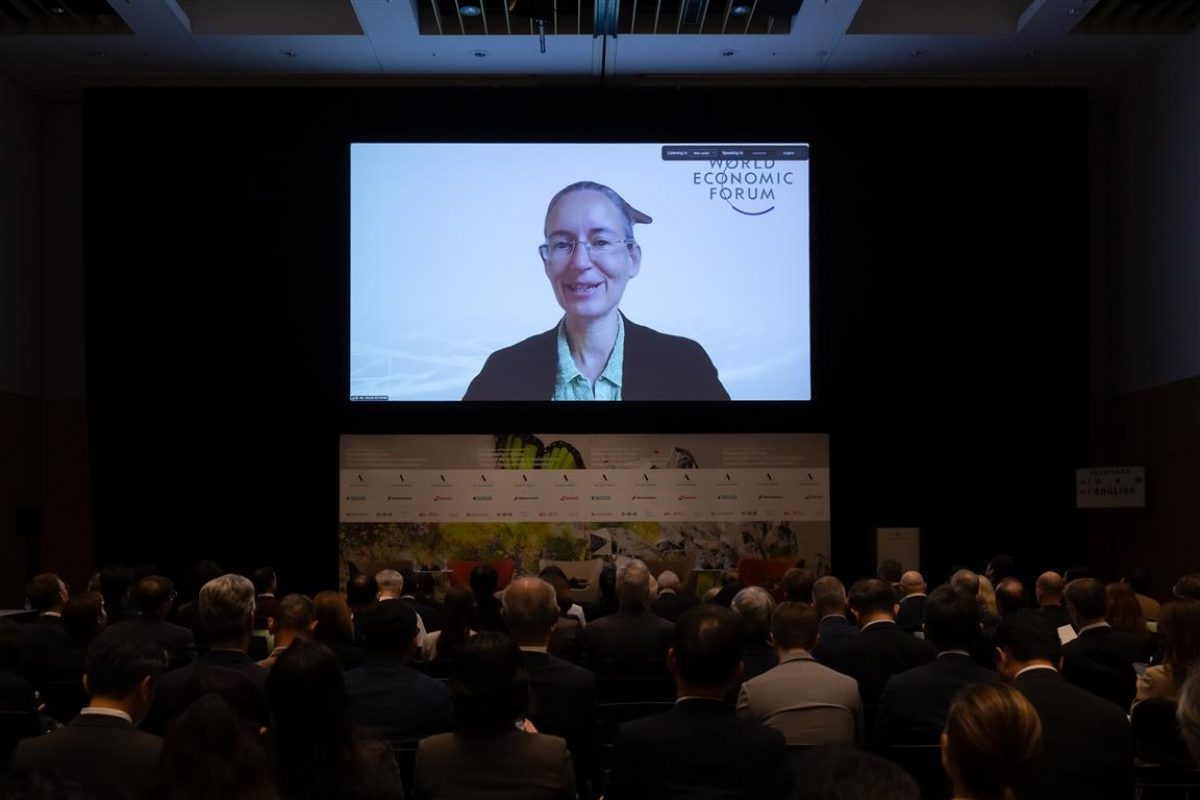
Ms. Nicole SCHWAB, a Member of the Executive Committee of the Geneva-based World Economic Forum, summarised the first panel with four key take-aways:
1. There are many emerging standards and frameworks for monitoring and mitigating nature-related risks.
2. These standards are still voluntary, but it is likely that some of these measures will become mandatory in the future.
3. Companies have a very important role to play, but the incentives are not yet strong enough.
4. Although new market instruments become available to value biodiversity, there is still no market for biodiversity yet.
In her online remarks, live from Switzerland, Ms. SCHWAB further highlighted some of the World Economic Forum’s initiatives to address the biodiversity crisis. She highlighted the economic opportunities of transitioning to a nature-positive economy, particularly in sectors such as food, infrastructure, and energy, which could generate $10 trillion annually and create 395 million jobs by 2030.
Panel 2 - From Commitment to Action: Challenges, Opportunities and Innovation in Regenerating Nature
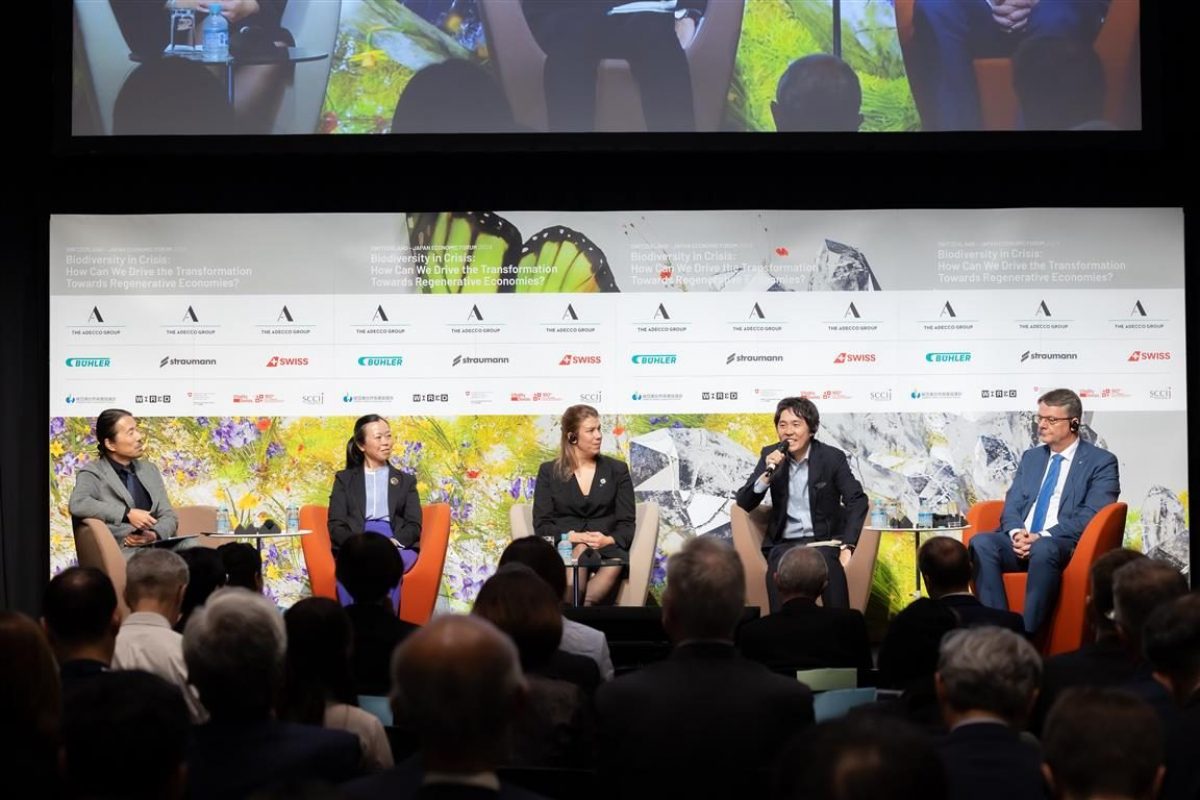
Echoing these significant economic opportunities and incentives, the second panel focused on the business perspective on implementing biodiversity standards, and how companies can move from commitment to action in restoring nature by using innovative approaches and cutting-edge technology. The discussion was moderated by Mr. Michiaki MATSUSHIMA from WIRED JAPAN, which has launched the Regenerative Company Award, intended to encourage companies to take further measures in the interests of biodiversity.
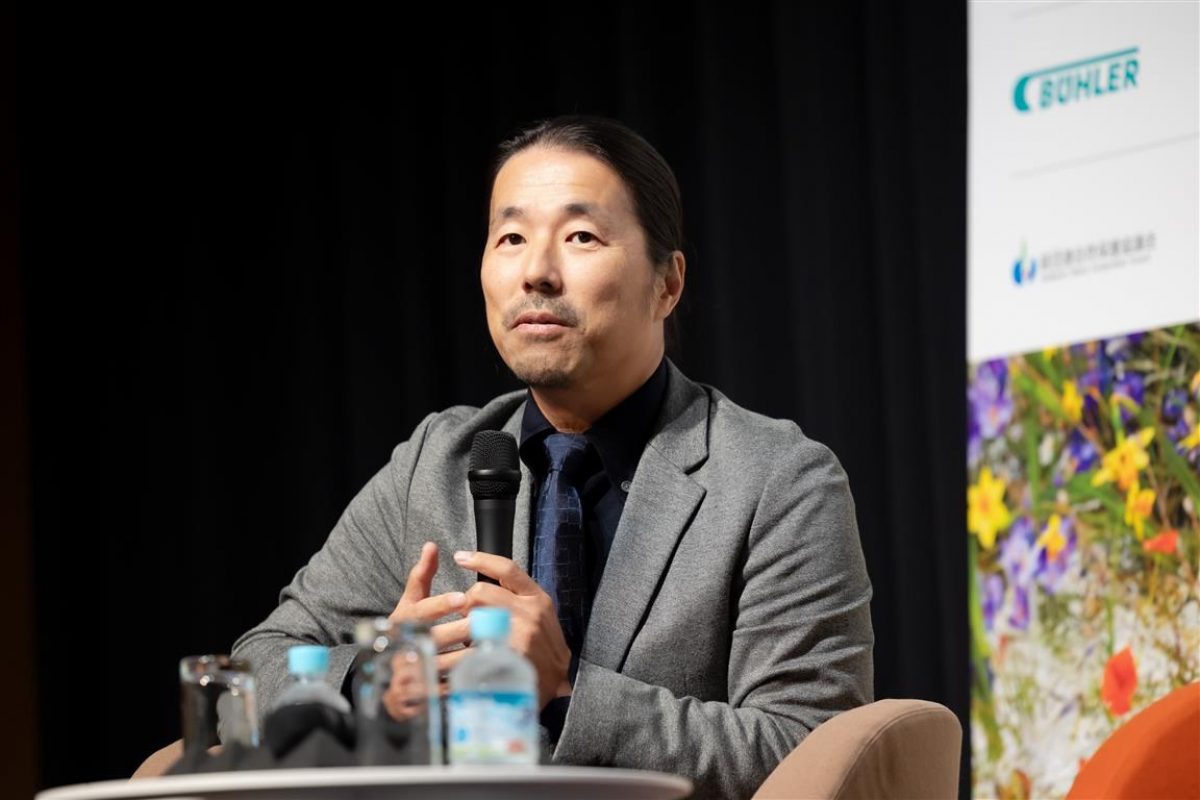
From the perspective of a Japanese engineering, procurement, and construction conglomerate, Ms. Jun HASHIMOTO from Shimizu Corporation explained how her firm has been implementing the TNFD framework in concrete terms. The construction industry, she said, plays a crucial role in nature conservation, particularly in material procurement, waste management, and interaction with natural environments. Shimizu Corporation aims to monitor and improve its processes, although challenges remain in aligning customer expectations with environmental goals.
Prof. Dr. Michael SCHAEPMAN furthermore raised awareness of unintended consequences. In adopting sustainable practices, there can also be a risk of creating new environmental problems. For instance, if everyone builds with wood instead of concrete, competition over locally grown wood would increase and lead to a rise in import of wood from overseas.
A critical part in understanding and addressing business impact on nature is to have sufficient data and the possibility to quantify changes in biodiversity. Dr. Shogoro FUJIKI, CEO of Biome Inc., is taking on this challenge with his startup, which is also part of the TNFD Tools Catalogue. Among other things, they are trying to raise interest and collect data through an app and biodiversity monitoring game that allows users to take pictures of animals.
Another promising area to obtain better data and develop biodiversity monitoring is SpaceTech. Together with academic partners and the NASA Jet Propulsion Laboratory the University of Zurich developed a unique imaging instrument operated in an airplane to measure biodiversity and its changes with high accuracy and offers this service to companies.
During the discussion, Ms. Anja RUNDQUIST of InvestConservation addressed concerns about greenwashing. To overcome this problem in their mission to make conservation investable, this Swiss startup applies advanced technology, and works with trustworthy local projects in the tropical forests to focus their efforts. Indeed, according to her, 2.5% of land constitute biodiversity hotspots, containing 43% of life. To fulfil their responsibility vis-à-vis investors, the company monitors biodiversity by satellite, image and sound data.
While technology will advance and get better, the speakers agreed that it is extremely important to invest today to monitor biodiversity and take action, because species are going extinct at an incredible rate. “Never let perfect be the enemy of action!” concluded Ms. RUNDQUIST.
Observations - Evidenced based Science and Tech for Regeneration
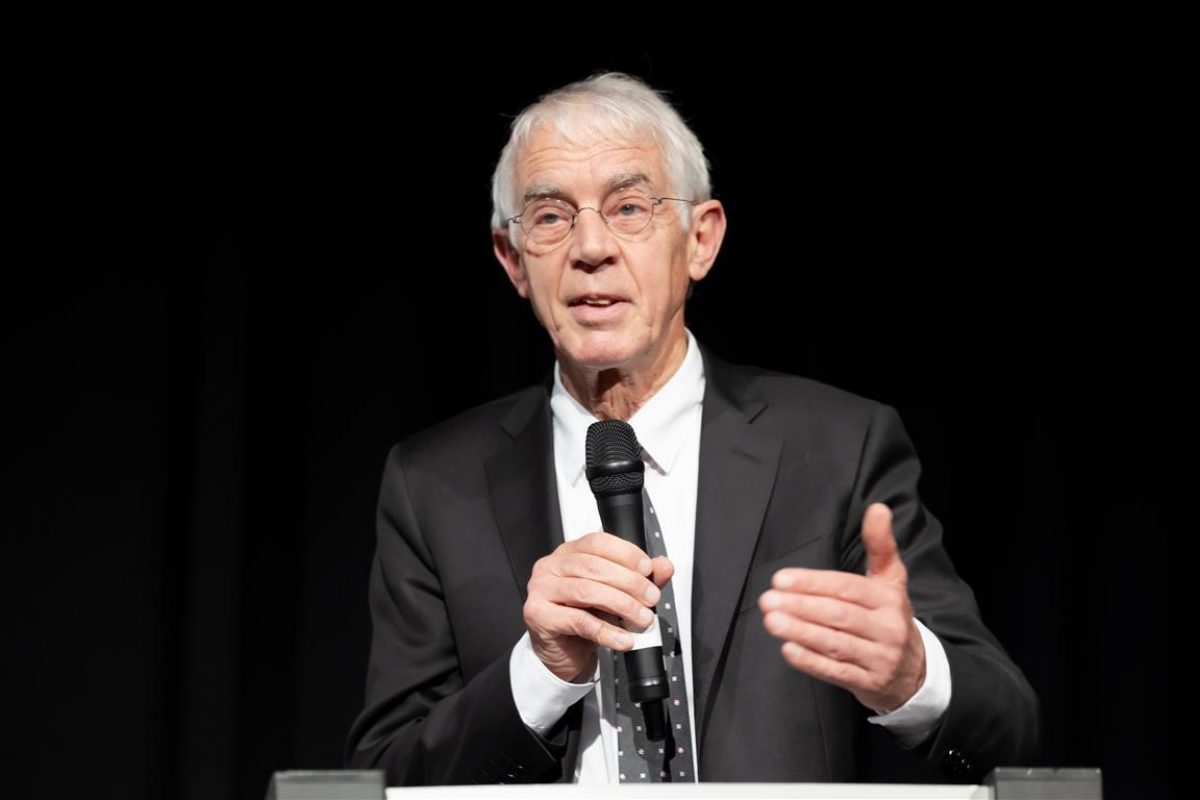
“If actions to increase biodiversity are even behind what we do in respect of climate change, I’m a bit worried” commented Prof. Dr. Martin VETTERLI, echoing remarks made during the second panel. In this sense, the President of the Swiss Federal Institute of Technology Lausanne EPFL stressed the importance of effective policies, and the opportunity to learn from the challenges of addressing climate change, for instance to ensure that biodiversity credits don't fall into the same pitfalls as carbon credits. While new technologies and business opportunities are promising, aligning incentives and implementing strong regulations such as a pricing mechanism for biodiversity will be crucial for meaningful action.
Integrative Summary

“I am a capitalist – capitalism is not bad, but the mistake is, that it only focuses on financial capital and natural and social capital are excluded from the calculation”.
In his closing remarks, Mr. Peter BAKKER, the President of the World Business Council for Sustainable Development emphasized the business case and urgency for action. The CEO of this Geneva-based global community of CEOs of leading sustainable businesses underlined the urgency by referring to the recently published Planetary Health Check showing that the 1.5-degree target is no longer reachable.
Another key message of the publication is, that the planetary buffers, such as forests and oceans can no longer sufficiently mitigate stress caused by human activity. The self-regulating planetary system is losing its resilience. Nature and climate are deeply connected, yet still treated as two separate issues. To improve this situation and build a resilient world, he addressed business leaders in the audience and shared his advice:
1. Assess the risks of climate change and biodiversity loss and their impact on supply chains and business.
2. Account for these risks and put the correct value on them as proper financial risks.
3. In order to make progress fast enough, innovation must be driven to the absolute maximum.
In conclusion, only a resilient world is going to provide a future for business and enable its success. And, humanity has only one planet to live on.
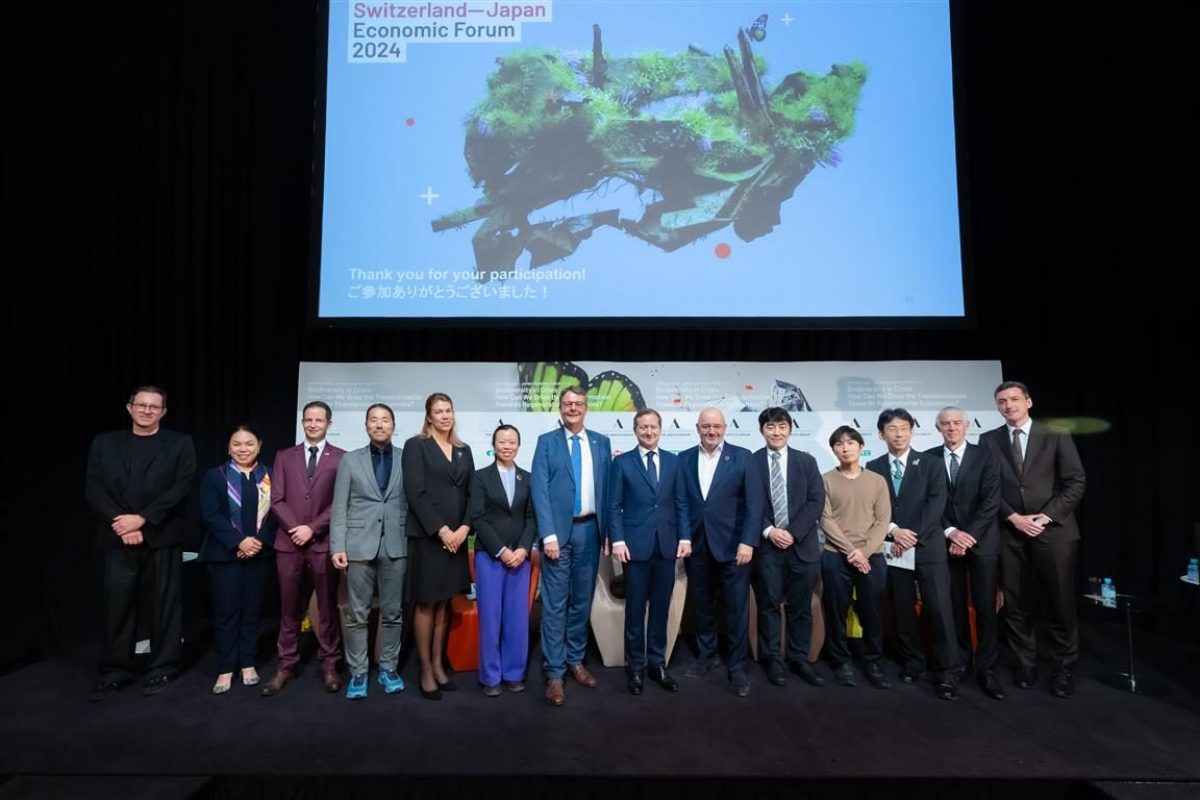
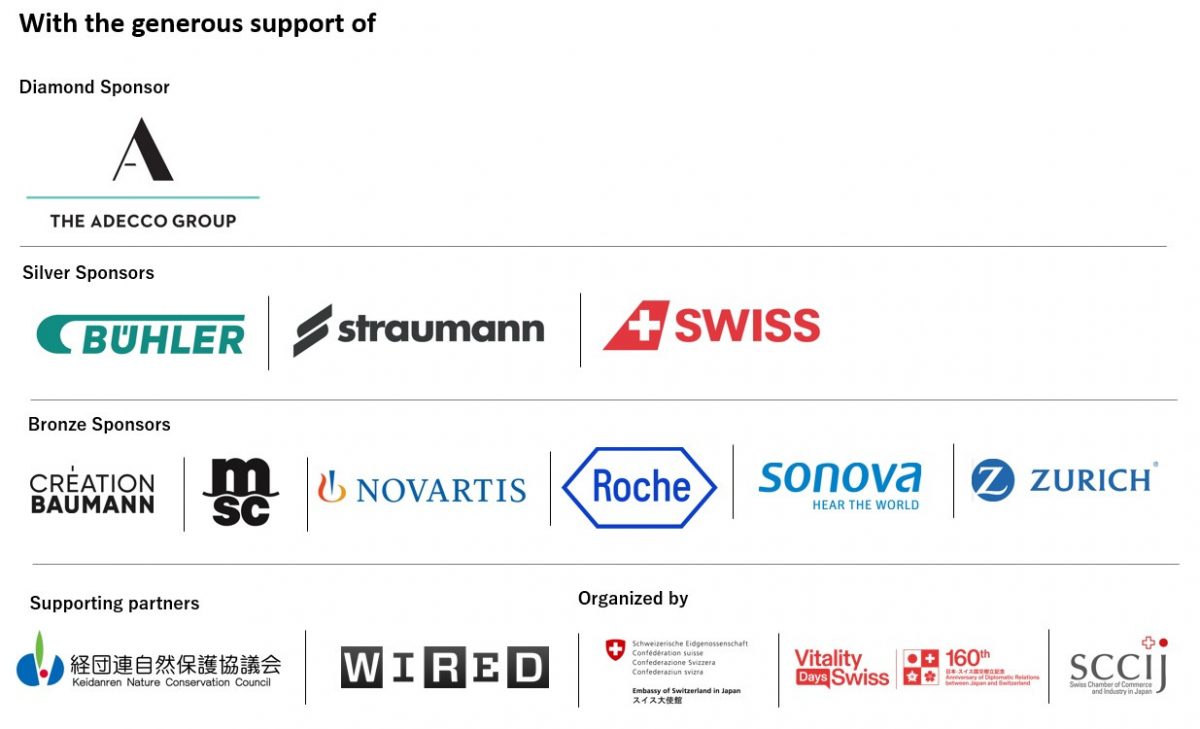
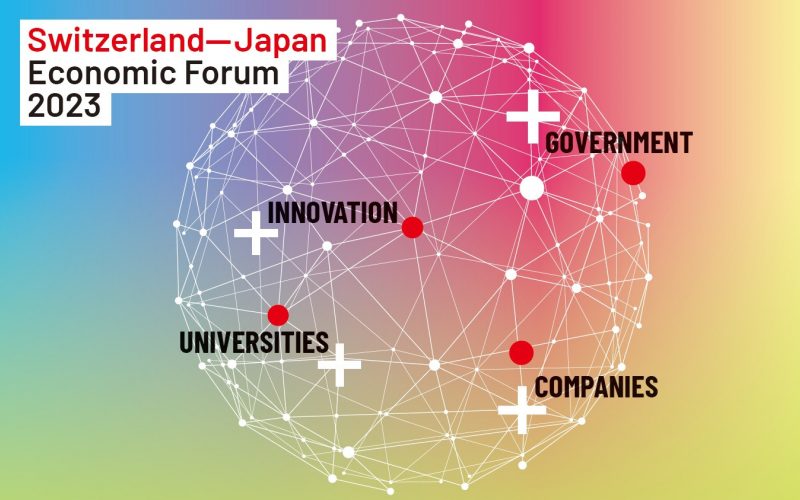
2023
COMPETITIVENESS AND INNOVATION: THE NEXT FRONTIERS FOR INDUSTRY-ACADEMIA COLLABORATION

2022
SUSTAINING VITALITY: THE MANAGEMENT OF WELL-BEING

2021
MOBILIZING OUR CAPITAL TOWARDS SUSTAINABILITY:
HOW CAN WE MAKE IT HAPPEN?

2020
TALENT FOR BUSINESS IN A TRANSFORMATIVE ERA – EXPERIENCES AND IDEAS FROM JAPAN AND SWITZERLAND

2019
SPORTS VALUES FOR BUSINESS:
EXPERIENCES FROM JAPAN & SWITZERLAND

